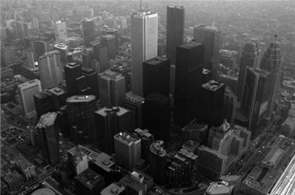My wife and I were visiting my wife’s family in the LA area of Southern California one holiday season not long ago. The home route up I-15 took us up through the desert of California, Nevada, and a small portion of Arizona before throwing us into the arid region of Saint George and Cedar City Utah. This route is always heavily trafficked, especially after the weekend; but because this had been a holiday it was worse than normal. For locations accustomed to this traffic I was astounded at how many fast food joints and gas stations were quite literally out of food or left to a slim on hand quantity to choose from. I quickly learned this because my wife was pregnant and required frequent stops and was frequently hungry.
Thinking about L.A. made me reflect on the situations of hundreds and thousands of cities around the US, and tens of millions of people. What happens when there is a real emergency and the majority of the populace attempts to relocate from the city to other locations within a short time frame? How quickly do vehicles begin running out of fuel, assuming they were topped off in the first place, and gas stations begin being bled dry? On a normal weekend a person can spend hours along I-15 in bumper to bumper traffic; what happens when vehicles burning fuel start running to a stop and blocking the traffic. Suddenly the roads are choked with dead vehicles and thousands of pedestrians desperate and thirsty looking for a ride. How long before it turns violent, especially in a desert? If you live in a city with limited avenues of escape I hope these are things you have considered. In many respects L.A. is a worst case scenario and no two cities are alike. And with preparation and forethought you can mitigate the majority of you worries.
If you live in a city similar to L.A. then your avenues of escape via an automobile is limited to interstates. What do you do? When reading Max Brooks’ Zombie Survival Guide (yes I recommend you buy and read this; it is an amazing piece of survival literature) he speaks out about being stranded in cities. Paraphrasing what he says; don’t get caught up in the highway death trap. The most well laid plan to hit up your cousin with a farm in the countryside falls apart when a real emergency hits. Brooks recommends a person or family starts by secreting yourselves into the loft or basement; make your house look unoccupied. If a looter enters the home try and keep you presence undetected; if you resort to violent confrontation it can lead to noise and possible escape of the thief. Either escape or noise can bring in a larger group of bad guys, at which time you are done. One of the keys to successful escape is keeping your presence while at home and while in transit as subtle as possible. Whether bugging in or bugging out don’t burden yourself with ammo like a wannabe Rambo; think escape and evasion.
Hide out for several days at home, obviously situational dependant on where you live and what supplies you have on hand, before you hit the road. If you have not thought ahead take time while in seclusion to consider options: railway tracks, hiking paths, service roads, and such. Do you have bikes and can they be used on these paths? My brothers taught me about geo caching. Reading James Wesley Rawles Patriots (another recommended read), the writer talks about an ROTC Candidate who buried an ammo box with additional long storage food, a fresh pair of broke in boots, and other tools. When he reached that point he traded out with his worn down boots, and restocked. If you have a pre chosen route of escape it becomes possible to secret water tight containers into the ground. Imagine having a restocking point every three days and how much that would lighten your load over a long distance trek. In Patriots the character had driven his car as far as the fuel would take him and then had to move to foot; one of his regrets looking back was that he had not geo cached fuel for emergency use. Fuel will not last indefinitely and will eventually breakdown, but there are a number of additives that can prolong the life expectancy of fuel by years (see the appendix in Patriots for information on additives and fuel life expectancy).
If you have given it some forethought purchase maps detailing service roads and backpacking trails. My brothers, while living in the Portland Salem area of Oregon, explored numerous routes to my home; our emergency collection point. Every time they would visit they took a different route observing water sources, likely geo cache sites, the number of towns and populations, and the best route of travel if one resorted to foot. My brothers in particular have also purchased books on medicinal and edible plants pertaining to the routes of travel, because foraging can be another path to survival. To those not capable of foot traffic consider alternate driving routes, and calculate how much fuel needs to be stored on hand. A person will not have every tool necessary for survival, and many of us have physical shortcomings; but we can prepare for alternate solutions.
If you live in a potential danger area don’t get caught up with masses; think about maps, alternate routes, methods of travel, geo caching, unnoticed travel, destination, and bugging in or bugging out.
Jon


Leave a Reply